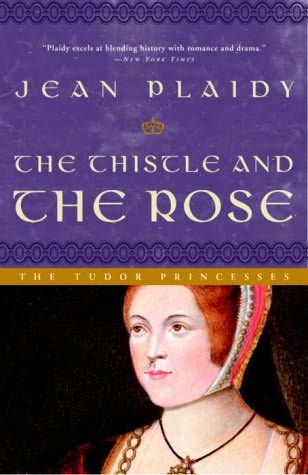
Who's reading The Plantagenet Prelude this month? I haven't started it yet, but as it is a smaller one I think I can get it in right at the end of the month. I have one more book to read before it.
We've decided on our September & October reads:
Sept. - The Wandering Prince (stand-alone or included in The Loves of Charles II trilogy). The trilogy is currently in print and available through Amazon, The Book Depository or any of the chain stores.
Oct. - Miracle at St. Bruno's (Philippa Carr) Out of print. I am going to see if I can get some copies from the used bookstores for those of you who can't find it.
Lucy is dying to read Plaidy's version Charles II & Louis XIV, so this is perfect! I read it a few years ago, so this is a refresher for me. Miracle at St. Bruno's is a nice introduction to her 'romance' pen name. I am curious to see just how romantic she gets.

Charles II, the most fascinating rake in England's history. The story of the years he spent in exile as a young man is seen through the eyes of two women.
Charles' sister Minette and his mistress Lucy Walter are brought vividly to life in this enthralling story of romance, escape and the youth of a king for whom love always came first.

Damask Farland
"I was born in the September of 1523, nine months after the monks had discovered the child in the crib on that Christmas morning. My birth was, my father used to say, another miracle: He was not young at the time being forty years of age . . . My mother, whose great pleasure was tending her gardens, called me Damask, after the rose which Dr. Linacre, the King's physician, had brought into England that year."
Thus begins the story narrated by Damask Farland, daughter of a well-to-do lawyer whose considerable lands adjoin those of St. Bruno's Abbey. It is a story of a life inextricably enmashed with that of Bruno, the mysterious child found on the abbey altar that Christmas morning and raised by the monks to become a man at once handsome and saintly, but also brooding and ominous, tortured by the secret of his origin which looms ever more menacingly over the huge abbey he comes to dominate.
This is also the story of an engaging family, the Farlands. Of a fathr wise enough to understand "the happier our King is, the happier I as a true subject must be," a wife twenty years his junior, and a daughter whose intelligence is constantly to war with the strange hold Bruno has upon her destiny. What happens to the Farlands against the background of what is happening to King Henry and his court during this robust period provides a novel in which suspense and the highlights of history are wonderfully balanced.
As Damask and her two cousins, Kate and Rupert, pass from childhood into adolescence, the peace that has lain for years over the big gabled Farland house as over England is shattered. At home the restless Kate has found the ivy-covered door in the abbey wall, and inevitably, curiosity leads to a confrontation with the mysterious boy Bruno and the knowledge of the perilous secret of the hidden treasure of the abbey. And beyond the Farland gates England's King has cast his covetous eyes on Anne Boleyn, and soon Sir Thomas More's severed head adorns London Bridge and a power-hungry Cromwell covets the abbey's riches.
The disappearance of Bruno and the treasure of the abbey and the betrayal of Damask's father to a hostile crown set forces in motion that threaten tragedy as Damask finds herself impelled by a force she cannot recognize, let alone cope with, to discover the secret of the missing abbey treasure and the truth surounding the handsome, almost mesmeric man whom she has always loved.
Damask and Bruno's story, the story of a questionable birthright, of the abbey and it's coveted treasures, The Miracle at St. Bruno's is also the story of sixteenth-century England - - an era of vicious corruption and deep tenderness, when periods of violent brutality follow a time of deep contentment, presided over by one of England's most colorful rakes and rulers, Henry VIII.
This long and richly entertaining novel is written with power and clarity and a superb sense of the suspenseful and dramatic.






































